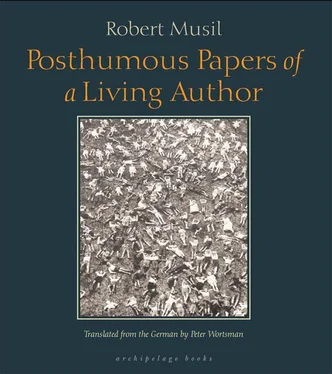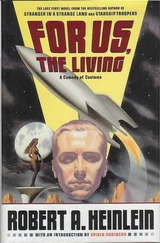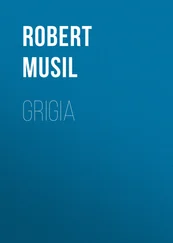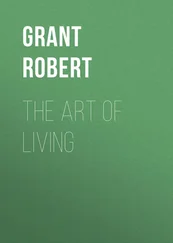One such provocation of the Lord involved a slow, muscle-straining elevation of the feet in midair, while with glance directed downward, you grasped at the parapet, balancing precariously on your hands. Anyone who has ever tried this stunt on level ground will appreciate just how much confidence, bravery, and luck are required to pull it off on a foot-wide stone strip up at the top of a tower. It must also be said that many wild and nimble boys, though virtuoso gymnasts on level ground, never did attempt it. Aone, for instance, never tried it. Atwo, on the other hand — and let this serve to introduce him as narrator — was, in his boyhood, the creator of this test of character. It was hard to find another body like his. He didn’t sport an athletic build like so many others, but seemed to have developed muscles naturally, effortlessly. A narrow smallish head sat atop his torso, with eyes like lighting bolts wrapped in velvet, and teeth that one would sooner have associated with the fierceness of a beast of prey than the serenity of a mystic.
Later, during their student days, the two friends professed a materialistic philosophy of life devoid of God or the soul, viewing man as a physiologic or economic machine — which in fact he may very well be, though this wasn’t the point as far as they were concerned, since the appeal of such a philosophy lies not in its inherent truth, but rather in its demonic, pessimistic, morbidly intellectual character. By this time their relationship had already become that special kind of friendship. And while Atwo studied forestry, and spoke of traveling as a forest ranger to the far reaches of Russia or Asia, as soon as he was through with his studies, his friend Aone, who scorned such boyish aspirations, had by then settled on a more solid pursuit, and had at the time already cast his lot with the rising labor movement. And when they met again shortly before the great war, Atwo already had his Russian adventure behind him. He spoke little about it, was now employed in the offices of some large corporation, and seemed, despite the appearance of middle-class comfort, to have suffered considerable disappointments. His old friend had in the meantime left the class struggle and become editor of a newspaper that printed a great deal about social harmony and was owned by a stock broker. Henceforth the two friends despised each other insuperably, but once again fell out of touch; and when they finally met again for a short while, Atwo told the following story the way one empties out a sack of memories for a friend, so as to be able to push on again with a clean bill of lading. It matters little under the circumstances how the other responded, and their exchange can perhaps best be related in the form of a monologue. It would be far more important to the fabric of the tale were it possible to describe exactly what Atwo looked like at the time (which is easier said than done), for this raw impression of the man is not without bearing on the gist of his words. Suffice it to say that he brought to mind a sharp, taut and narrow riding crop balanced on its soft tip, leaning up against the wall; it was in just such a half-erect, half-slouching posture that he seemed to feel most at ease.
Among the most extraordinary places in the world — said Atwo — are those Berlin courtyards where two, three, or four buildings flash their rear ends at each other, and where, in square holes set in the middle of the walls, kitchen maids sit and sing. You can tell by the look of the red copper pots hung in the pantry how loud their clatter is. From far down below a man’s voice bawls up at one of the girls, or heavy wooden shoes go clip-clop back and forth across the cobblestones. Slowly. Heavily. Incessantly. Senselessly. Forever. Isn’t it so?
The kitchens and bedrooms look outwards and downwards on all this; they lie close together like love and digestion in the human anatomy. Floor upon floor, the conjugal beds are stacked up one on top of the other; since all the bedrooms occupy the same space in each building — window wall, bathroom wall and closet wall prescribe the placement of each bed almost down to the half yard. The dining rooms are likewise piled up floor on floor, as are the white-tiled baths and the balconies with their red awnings. Love, sleep, birth, digestion, unexpected reunions, troubled and restful nights are all vertically aligned in these buildings like the columns of sandwiches at an automat. In middle-class apartments like these your destiny is already waiting for you the moment you move in. You will admit that human freedom consists essentially of where and when we do what we do, for what we do is almost always the same: thus the sinister implications of one uniform blueprint for all. Once I climbed up on top of a cabinet just to make use of the vertical dimension, and I can assure you that the unpleasant conversation in which I was involved looked altogether different from that vantage point.
Atwo laughed at the memory and poured himself a drink; Aone thought about how they were at that very moment seated on a balcony with a red awning that belonged to his apartment, but he said nothing, knowing all too well what he might have remarked.
I am still perfectly willing to admit today, by the way — Atwo added of his own accord — that there is something awe-inspiring about such uniformity. And in the past this sense of vastness, of a wasteland, brought to mind a desert or an ocean; a Chicago slaughterhouse (as much as the image may turn my stomach) is after all quite different from a flower pot! But the curious thing was that during the time I occupied that apartment, I kept thinking of my parents. You recall that I almost lost contact with them — but then all of a sudden this thought came to me out of nowhere: They gave you your life. And this ridiculous thought kept coming back again and again like a fly that refuses to be shooed away. There’s nothing more to be said about this sanctimonious notion ingrained in us in early childhood. But whenever I looked over my apartment, I would say to myself: There, now you’ve bought your life, for so and so many marks a month rent. And sometimes maybe I also said: Now you’ve built up a life for yourself with your own two hands. My apartment served as some amalgamation of a warehouse, a life insurance policy and a source of pride. And it seemed so utterly strange, such an inscrutable mystery that there was something which had been given to me whether I had wanted it or not; and, moreover, that that something functioned as the very foundation of everything else. And I believe that that banal thought concealed a wealth of abnormality and unpredictability, all of which I had kept safely hidden from myself. And now comes the story of the nightingale.
It began on one evening much like any other. I’d stayed home, and after my wife had gone to bed, I sat myself down in the study; the only difference that night was that I didn’t reach for a book or anything else, but this too had happened before. After one o’clock the streets started getting quieter; conversations became a rarity; it is pleasant to follow the advent of an evening with your ear. At two o’clock all the clamor and laughter below have clearly tipped over into intoxication and lateness. I realized that I was waiting for something, but I didn’t know what for. By three o’clock — it was May — the sky grew lighter; I felt my way through the dark apartment to the bedroom and lay down without a sound. I expected nothing more now but sleep, and that the next morning would bring a day like the one that had just passed. And soon I no longer knew whether I was awake or asleep.
In the space between the curtains and the blind a dark greenness gushed forth; thin bands of the white froth of morning seeped in between the slats. This might have been my last waking impression or a suspended dream vision. Then I was awakened by something drawing near; sounds were coming closer. Once, twice I sensed it in my sleep. Then they sat perched on the roof of the building next door and leaped into the air like dolphins. I could just as well have said, like balls of fire at a fireworks display, for the impression of fireworks lingered; in falling, they exploded softly against the windowpanes and sank to the earth like great silver stars. Then I experienced a magical state; I lay in my bed like a statue on a sarcophagus cover, and I was awake, but not like during the day. It is very difficult to describe, but when I think back, it is as though something had turned me inside out; I was no longer a solid, but rather a something sunken in upon itself. And the air was not empty, but of a consistency unknown to the daylight senses, a blackness I could see through, a blackness I could feel through, and of which I too was made. Time pulsed in quick little fever spasms. Why should something not happen now that normally never happens? — It’s a nightingale singing outside! — I said half aloud to myself.
Читать дальше











